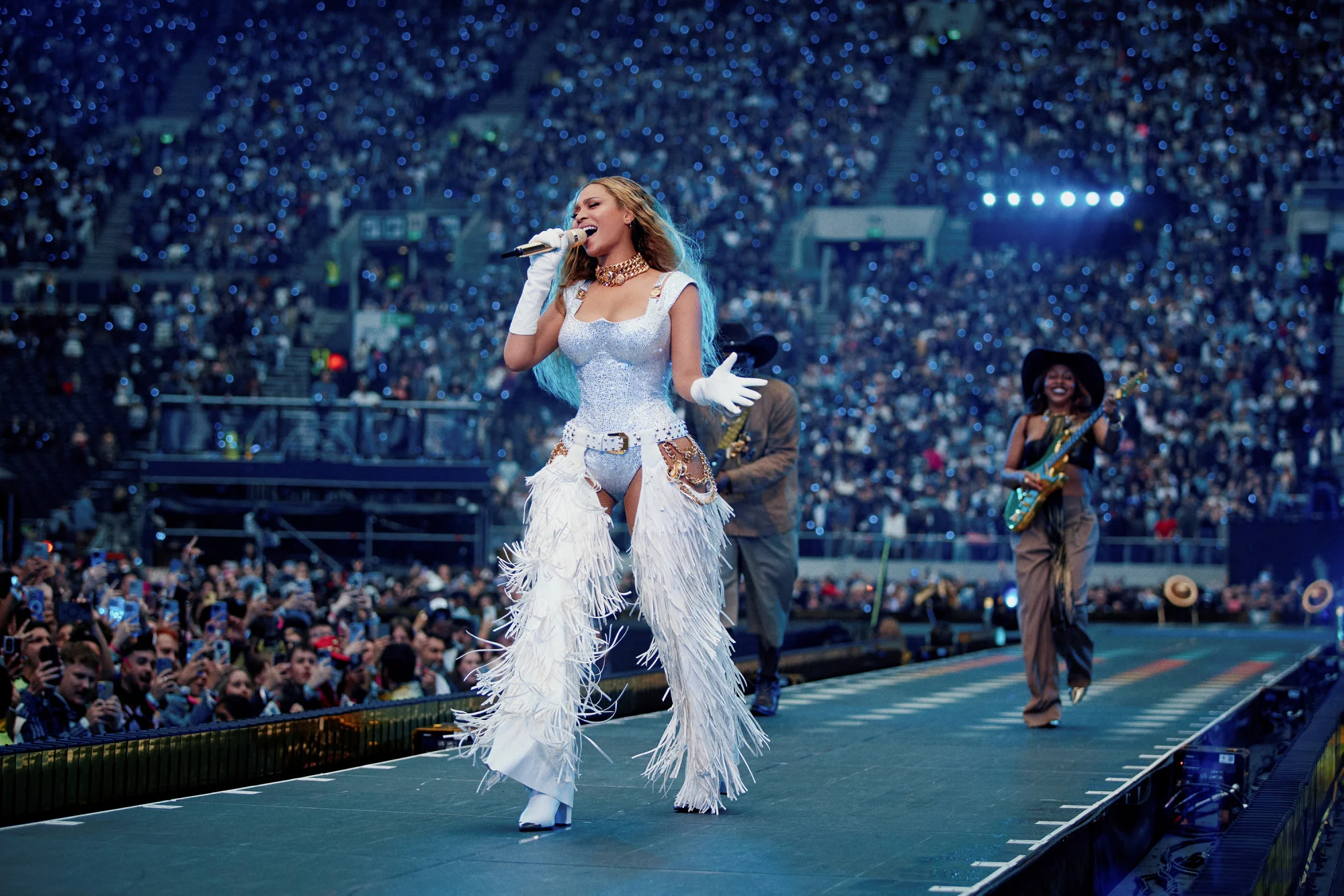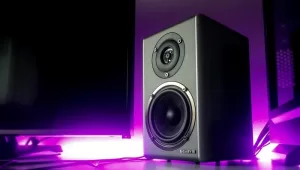Beyoncé Rewrote the Rules with Cowboy Carter—And Country Music Will Never Be the Same

- A staggering $400 million has accrued from the “Beyoncé-Life-Cowboy-Carter” tour, earning it the title of most lucrative tour for country music.
- This tour worked to amass more than 1.6 million fans in 32 stadium shows, touting the global brand of Beyoncé.
The Beyoncé Cowboy Carter Tour wasn’t just a concert series. It became a cultural moment. From the first show in Los Angeles all the way to the last night in Las Vegas, Beyoncé, in its own right, would be something that thrust beyond the usual confines of genre, identity, and performance. Her country-inspired pivot was no detour. It was a declaration. And it hit globally.
With over $400 million in gross earnings, the Beyoncé Cowboy Carter Tour is now the most successful and highest-grossing country tour on record. The number alone was enough to make headlines, and it is exciting at that. However, what makes it truly fascinating in this particular case is how Beyoncé positioned herself and how the world responded.
She didn’t just enter country music. She reframed it. The release of the Cowboy Carter album earlier this year laid the groundwork, a blend of country and Southern Black musical traditions delivered with a pop star’s confidence. From there, the tour scaled that concept to a full spectacle, attracting more than 1.6 million fans across 32 shows and elevating her global music branding profile to new heights.
London, Boots, and Streaming Spikes
London played a central role. Six nights at Tottenham Hotspur Stadium were completely sold out, breaking her record at the venue. The British press covered every wardrobe change. TikTok lit up with fan-shot videos of her dramatic entrances and gospel-inflected ballads. In the UK, 60% of listeners surveyed discovered country music after the release of Cowboy Carter, contributing to increased streaming of Beyoncé’s music during her tour run. Fashion retailers reported increased demand for cowboy boots and fringe jackets, driven by the visuals and energy of her UK performances.
Fans came from everywhere. Some travelled across borders just to see her once. In Brazil, Beyoncé has historically drawn massive crowds, though specific attendance figures for Cowboy Carter there remain unverified. In Atlanta, reports confirmed fans camped out overnight to get the best spots. Given its worldwide appeal, the Beyoncé Cowboy Carter Tour turned into an occasion of religious pilgrimage for each spot on the map.
With tickets hovering around £160 in the UK and over $200 in the United States, VIP packages sold out within minutes, while demand went through the roof. Official merchandise of the city brand was equally snatched in pop-up stores and online drops, selling in a flash. The visuals were precise. The vibe was intentional. From mechanical horses to vintage film-inspired LED projections, Beyoncé leaned into the aesthetics of Americana—but on her terms.
Strategic Partnerships and Brand Power
There’s no mistaking the strategy here. The Beyoncé Cowboy Carter Tour wasn’t an experiment—it was an engineered rollout from one of the most powerful personal brands on the planet. According to Forbes, Beyoncé’s estimated net worth in early 2025 was around $760 million. While Ivy Park had been part of her brand portfolio, the line reportedly ceased operations in 2023. Parkwood Entertainment, her company, remains a central piece of her brand infrastructure.
And that ecosystem includes serious partners. Verizon was an official presale partner for the Cowboy Carter Tour in the U.S. and likely had broader promotional involvement. Amazon Music was a major streaming partner for the Cowboy Carter album and promoted the project heavily. While Ford’s involvement has not been confirmed, Cowboy Carter-themed trucks and pop-up-style setups were reported in locations like Nashville, suggesting unofficial brand activations.
This type of integration wasn’t new, but it felt evolved. Brands didn’t just ride the wave. They were built into the moment. While data on outcomes is not publicly available, Verizon and Amazon Music likely saw increased fan engagement and usage metrics tied to the tour and its content.
Fandom and the Beyoncé Effect
But beyond the music industry revenue and brand partnerships, the fandom tells the real story. Beyoncé’s fanbase—already one of the most active online communities in music—rallied behind her like never before. While exact Instagram growth during the tour is difficult to verify, her following has grown consistently. YouTube content related to Cowboy Carter saw high engagement, though claims of performance streams doubling compared to the Renaissance era remain unverified.
One data point did stand out: Spotify revealed that more than 36 million users streamed a country song for the first time due to Cowboy Carter. This marks a massive genre crossover moment. However, the claim that nearly 40% of Cowboy Carter listeners were first-time Beyoncé streamers is not supported by available data.
That’s what makes this tour historic. Not just the records, but the reach. Beyoncé wasn’t following a genre. She was reshaping it. Her country sound wasn’t about fitting in. It was about carving space, making room for herself and anyone else who didn’t feel reflected in the traditional country music mold.
She’s now the only Black woman to top the country music charts and lead the highest-grossing country tour of all time. That’s not just a music stat. That’s a branding milestone in concert tour statistics.
And while critics debated her place in the genre, Beyoncé didn’t flinch. She let the work speak. The Cowboy Carter album debuted at No. 1 in 52 countries on Apple Music and in 38 countries on iTunes. Its visuals—shared in real time by fans and sponsors—kept the momentum alive between stops. And the tour rollout itself was meticulous. There were no leaks. No filler. Every move was calculated.
The Brand Strategy in Music Reimagined
Cowboy Carter marks a distinct phase in Beyoncé’s journey. It’s a return to roots, sure—but also a look forward. It showed that the borders between genres, markets, and mediums are now more flexible than ever—if you’ve got the influence and audience to shape them.
And Beyoncé does. In a music economy driven by streaming stats and global reach, she’s one of the few acts who can still fill stadiums and dominate charts without major media reliance. She doesn’t need a press tour. She doesn’t need to explain her choices. The audience follows because the brand commands that trust.
As whispers circulate about a possible visual album tied to Cowboy Carter, and platforms reportedly negotiate for exclusivity, one thing is clear: Beyoncé’s current era is about total control. Control over the music. Control over the story. Control over the culture that moves around her.
And as the final show wrapped in Las Vegas, Cowboy Carter didn’t fade away. It lingered. In playlists. In fashion. In conversations about who gets to lead and what global music branding looks like in 2025.
It was more than a country moment.
It was a Beyoncé era.











